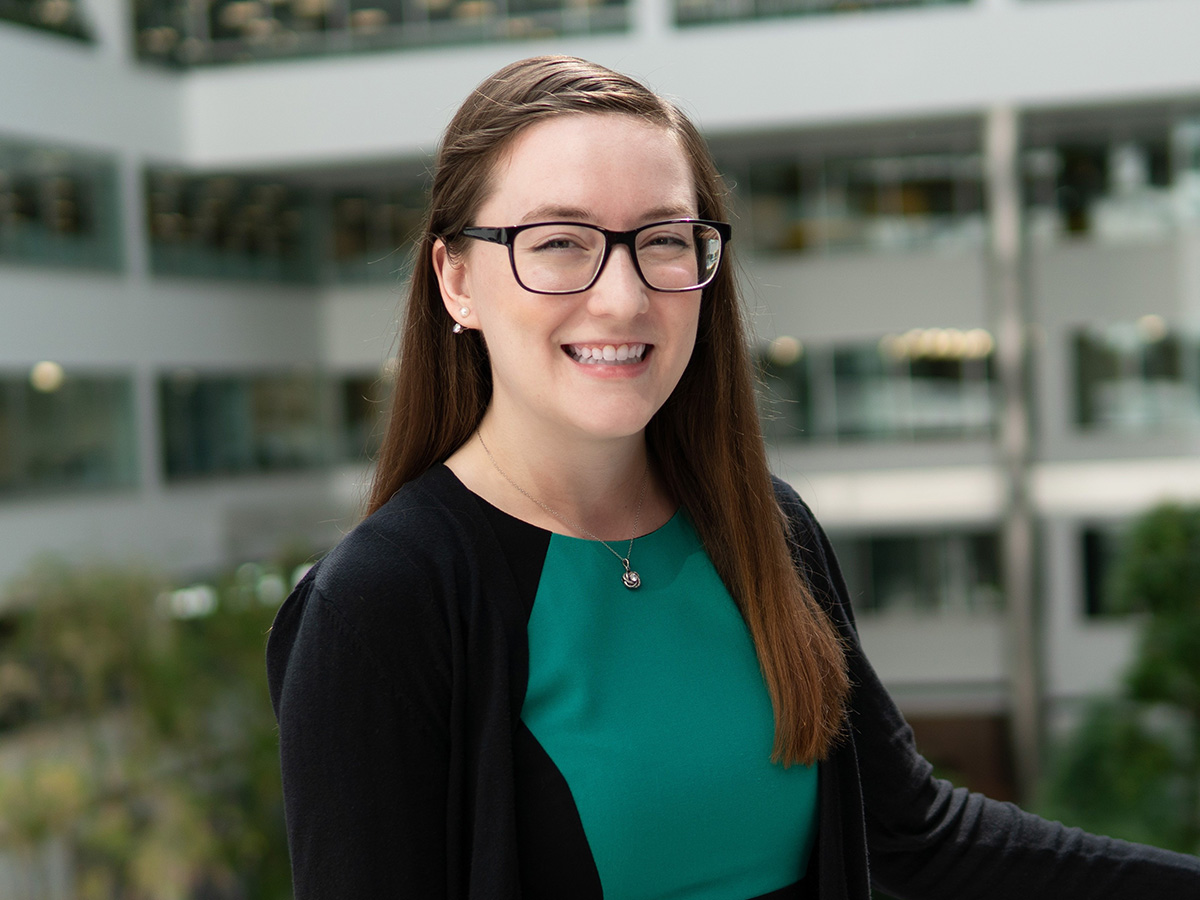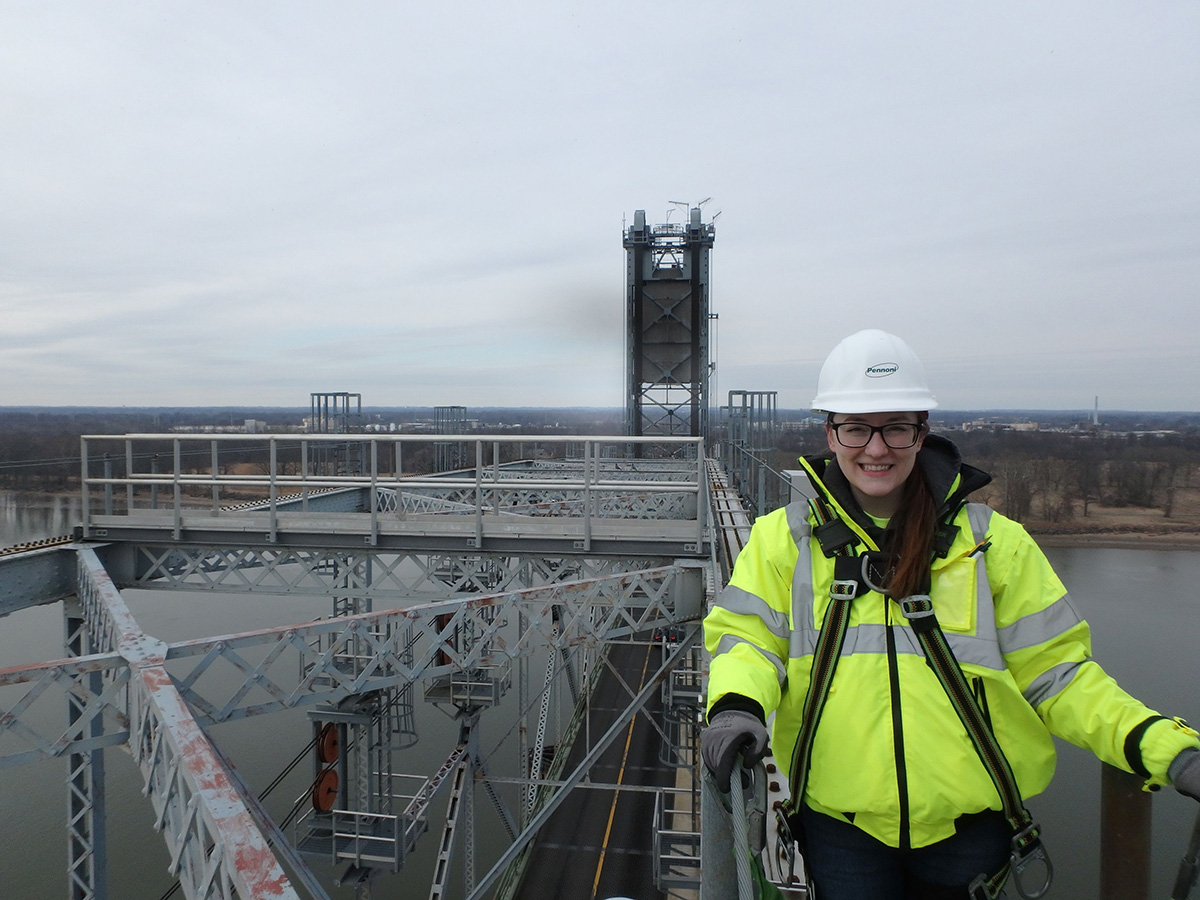 Schroeder
Schroeder
Danielle Schroeder, civil engineering ’17, considers herself a latecomer to
engineering. As a high school student, she never knew that it was a viable
course of study, let alone a career option.
“I didn’t find out about engineering until junior year (in high school),
when a teacher casually mentioned a camp to me because I was interested in
science,” Schroeder says. “It was there that I both learned and fell in
love with engineering.”
Now, Schroeder is making up for lost time and making sure that other
students, especially girls, learn about engineering at a young age.
Schroeder, who works professionally as an associate bridge engineer for
Pennoni, spends her free time volunteering for a variety of initiatives
that get children as young as kindergarten up to women in high school
involved in engineering. For her efforts, Schroeder was recently named the
recipient of a 2020 Community Outreach and Service Award from the
Philadelphia section of the American Society of Civil Engineers.
“I really believe that you can’t be what you can’t see,” she says. “Without
seeing role models, it’s so much harder to envision yourself in that
career. It’s especially difficult for young women: You Google ‘engineer’
and you mainly see pictures of men. Women need to see themselves in these
professions and that is exactly what I strive to do through my STEM
outreach.”
With ASCE, Schroeder is co-chair of the K-12 outreach program, which goes
into schools in the city and surrounding region and teaches Civil
Engineering concepts through hands-on activities. She is also vice chair of
the Women’s Transportation Seminar Philadelphia’s student outreach
committee for TransportationYOU, an interactive, mentoring program that
offers young women ages 13-18 an introduction to a wide variety of
transportation careers. Schroeder says that the hands-on aspect of the
activities helps students envision themselves in that field in the future.
 As a bridge engineer for Pennoni, Schroeder has worked on several local structures.
As a bridge engineer for Pennoni, Schroeder has worked on several local structures.
“When you’re doing something like building a tower, you have to solve
problems in real time,” Schroeder says. “It’s especially effective with the
elementary school students when we can mix up the groups so everyone is
working with a team of people of different ages and expertise levels. It
simulates working in the real world.”
Schroeder credits her time at Drexel with her success and her passion for
giving back. She says that she is living the “Drexel dream,” working in a
full-time job with the same company she completed co-op work with as a
student.
“The beauty of co-op is you can get your feet wet and see how what you’re
learning in the classroom applies to the real world,” she says. “You also
get to see what kinds of work you like and what you don’t like, and it can
narrow your search when you’re looking for a job after graduation. I
realized that I like the physical side of infrastructure. There’s so much
nuance and so many factors that go into bridges that most people don’t know
about – you typically drive over a bridge and are just thankful it exists.
Through my bridge design and inspection work, I get to know all the
numerous components and connections that help the bridge span abutment to
abutment.”
Her extracurricular activities also shaped her desire to help others find
their passion in engineering. As a student member of the Society of Women
Engineers, Schroeder recalls meeting Alma Forman ’49, Drexel’s first female
civil engineering graduate.
“[Forman] is a huge source of inspiration for me,” Schroeder says. “She cut
the path that so many of us have followed.”
Schroeder hopes to pass that inspiration on to future Dragons as the
youngest member of Drexel Alumni’s board of governors.
“Pun intended – bridges are as important in my personal life as they are in
my professional life,” she says. “When I was a student, I got to connect
with working alumni and find out the creative ways they were using their
degrees, and I want to continue that tradition to bridge the gap. Your
career does not have a syllabus. Just because you have a degree in X
doesn’t mean you can’t have a career in Y. Finding alumni mentors can help
you make that connection.”